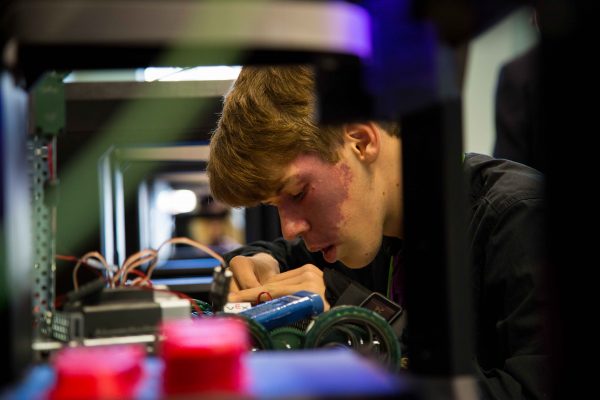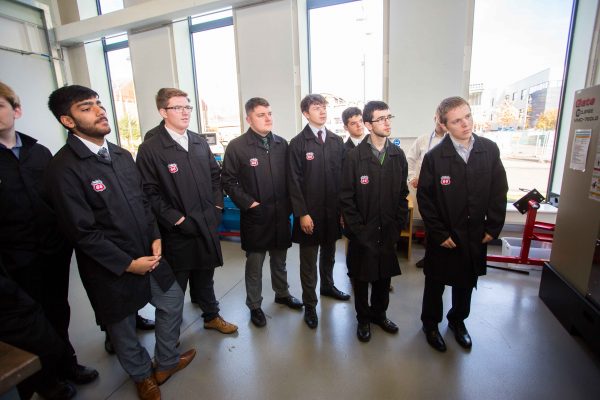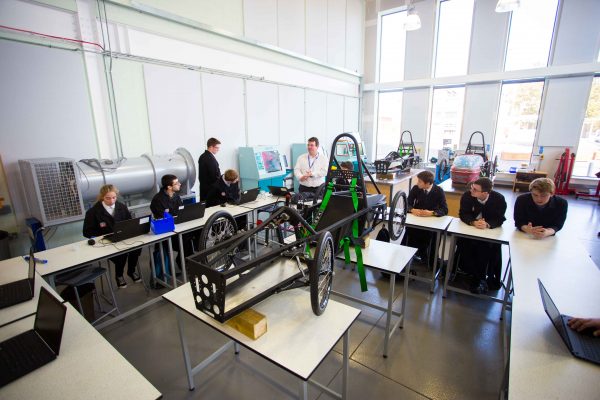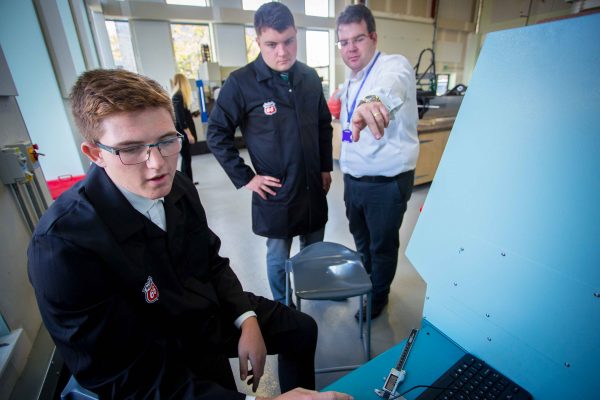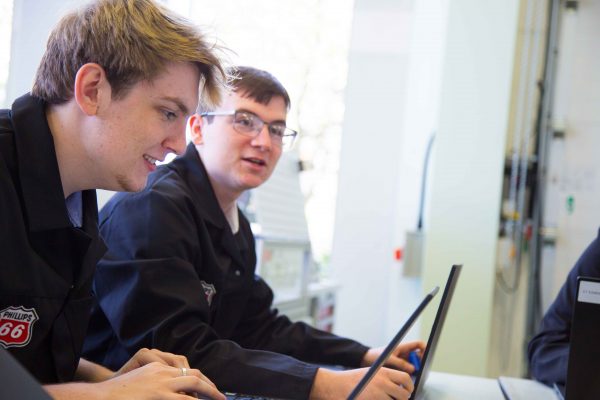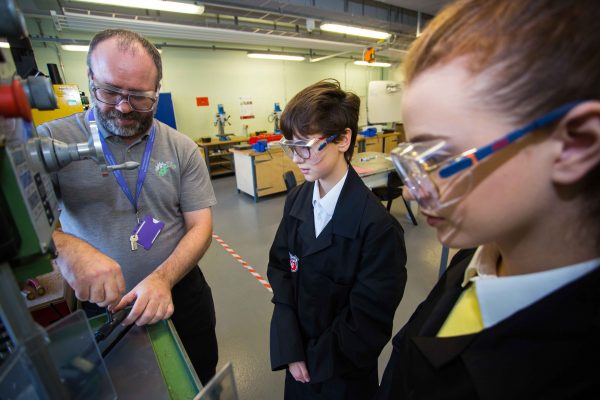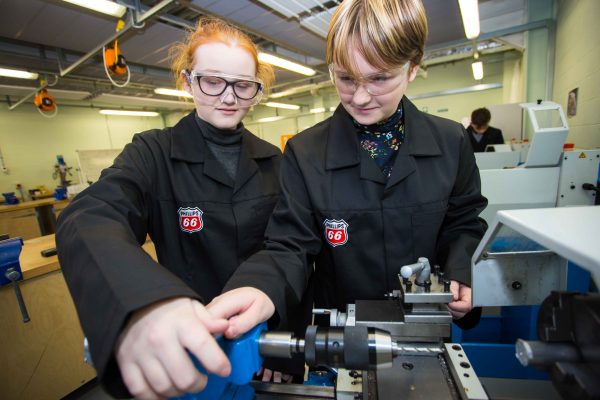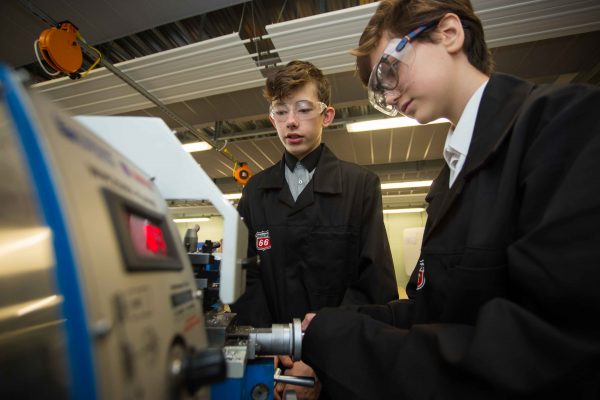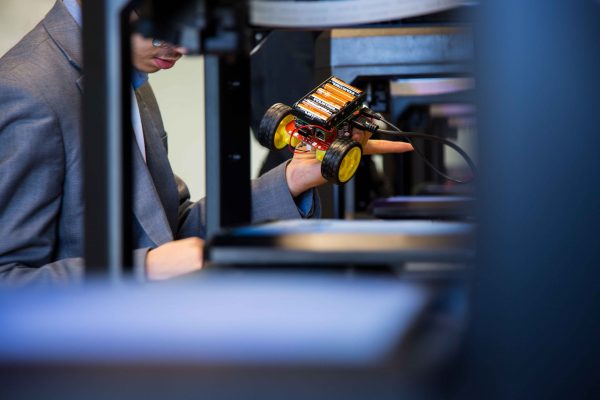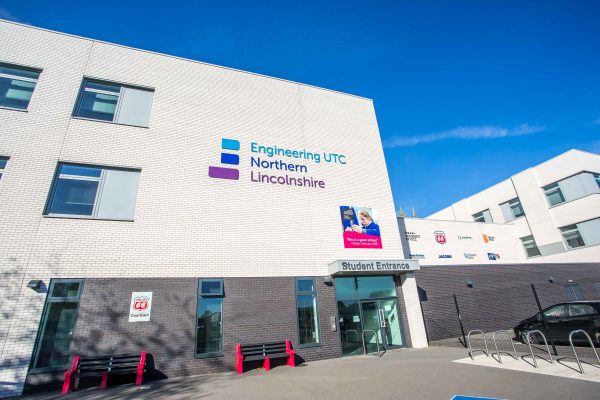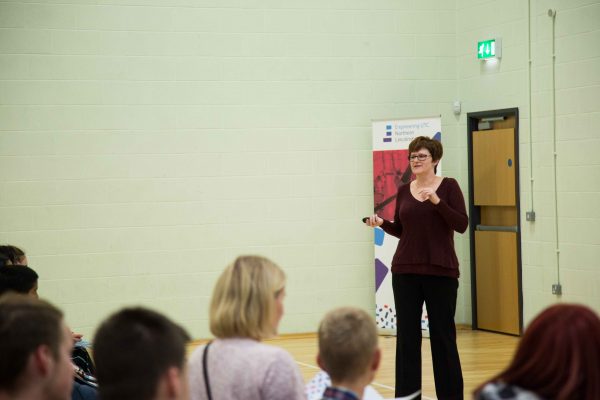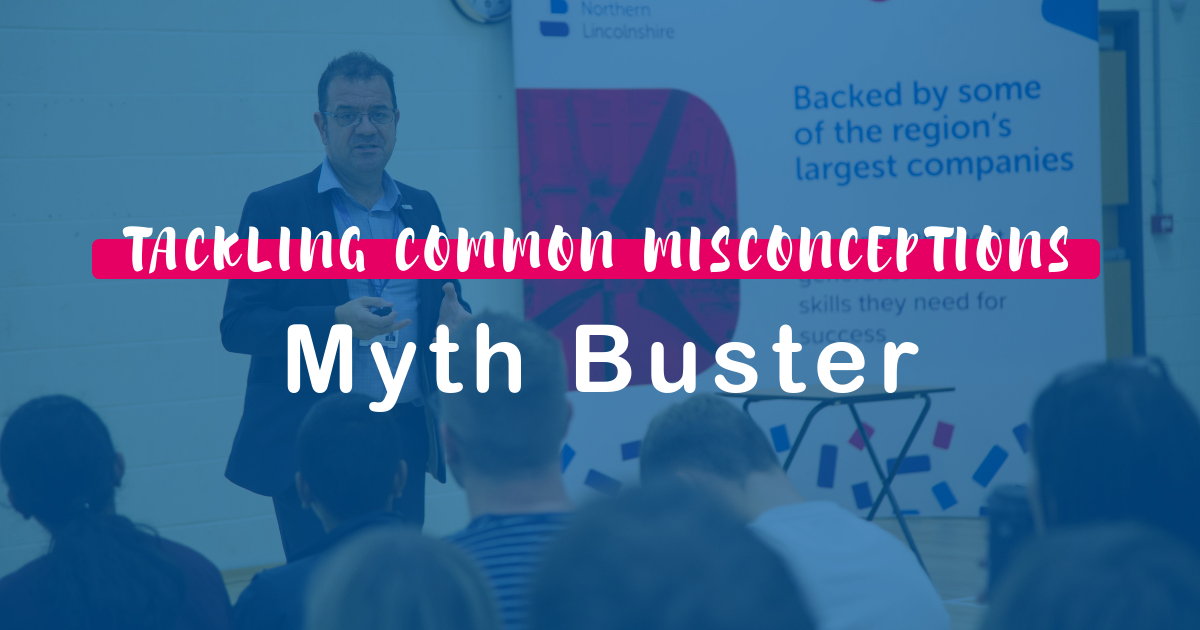
Offering a new kind of education, future-focused UTCs (University Technical Colleges) equip learners aged 13 or 14-19 with the skills they need to take their future workplace with the confidence, industry knowledge and experience required. Government funded, UTCs offer a genuine alternative to the traditional education system that already exists by allowing students to have an active role in choosing their future.
Since opening the doors to our £12m campus back in September 2015, the Engineering UTC Northern Lincolnshire recognises that there are some common misconceptions that surround the pathways the UTCs provide for young individuals.
To help combat these misconceptions and to provide a clear perspective into the exciting engineering and technology careers available, we have put together this Myth Buster to help answer your questions.
“Why are you no longer known as Humber UTC?”
Humber UTC underwent a makeover back in January 2018 and is now officially recognised as the Engineering UTC Northern Lincolnshire. The decision to rebrand the UTC was made as we felt it would better communicate our main aim, which is to deliver young individuals aged 13-19 directly into engineering and technology industries, through a specialist STEM-based education.
The rebrand also reflects our close relationships with industry partners and broadens our scope beyond the Humber. We are however, still located on Carlton Street, within Scunthorpe Town Centre and are easily accessible via public transport.
“I’ve heard that UTC school leavers struggle to find work.”
Engineering and technology are highly regarded fields that are recognised worldwide and according to Engineering UK 2018, 62% of engineering and technical graduates found full-time employment within six months of graduating compared with 56% of all graduates.
In 2018, UTC student destinations showed that a record of only 3% of school leavers were NEET (not in employment, education or training) compared to 8% nationally. The destinations also recorded that;
- 47% of UTC leavers went to university
- 27% of UTC leavers started an apprenticeship
- 14% of UTC leavers started a job
- 5% of UTC leavers pursued other forms of education (FE)
The Engineering UTC Northern Lincolnshire takes an immense amount of pride in developing strong partnerships with local industry experts that help to contribute towards our hands-on and practical, employer-shaped curriculum. By providing students with the industry knowledge, attitude and technical skills required by future employers it allows them to make a rapid and successful transition into working life. Alongside of this, the ENL UTC also has a particular focus on developing individual’s personal and professional skills that are transferable when connecting education to industry. Helping them to feel prepared for any situation and putting them at the front of the career queue.
“Isn’t engineering just working on cars?”
Engineering is one of the UK’s broadest sectors, with specialist branches in a number of different areas, meaning that you don’t always have to get oily!
Each year it is estimated that there are up to 40,000 jobs available, requiring STEM-based skills, within the UK. So whilst Mechanical Engineering is on the curriculum to help our students understand how to design power-producing machinery, we also introduce a much wider skill set including: aerospace, chemical, civil, computer, design, electrical, and environmental to name a few.
UTCs are designed to build expertise in subject areas by working closely with employers on technical projects. At the ENL UTC, our partners aren’t just from within the engineering industries, they stem from all areas including higher education, career advice, and entrepreneurs, to provide a well-rounded view into the future potential of each individual.
“Engineering UTC students perform poorly compared to those at other school.”
This is not true. In February 2018, the ENL UTC received our first inspection where we received a Good rating by OFSTED.
In the report which can be found below, it is stated that “In Key Stage 4, the attainment of pupils in English and Mathematics is above the national average.” And “Almost all the students from the year 11 cohort in 2017 are in further education, training or employment. Half of the year 12 students secured higher-level apprenticeships and some enrolled on courses at university.”
Through the UTCs innovative concept of education that combines technical, practical and academic learning it allows our students to excel in their studies with our Ofsted report stating “Pupils and students have a strong commitment to learning and demonstrate strong work-related skills and attitudes. They are proud of their college.”
“UTC students aren’t as academic and successful as their peers.”
Did you know that the average starting salary in the engineering sector is £25,607, compared to the average graduate salary of £21,700? Did you also know that the average salary for all engineers within the UK is around £40,000 per annum?
Engineering is the application of knowledge in the form of STEM (Science, Technology, Engineering and Mathematics), that requires innovation, creativity and academic practise to be able to tackle some of the world’s most pressing challenges.
At the ENL UTC our students have the opportunity to study for their GCSEs or A-levels whilst simultaneously developing technical skills and qualifications. On average throughout the year our students will spend up to 60% of their time in core academic subjects such as: Maths, English literature and language, computer science and a range of optional subjects. The other 40% is then spent focusing on a range of pathways dedicated to industry including; Design, Manufacturing and System and Control. This means that our students develop well-rounded skills including academic, technical, personal and professional that equip them for top-flight universities, high quality apprenticeships and employment.
“Are there roles for women in these industries?”
Traditionally engineering and technology have been viewed as ‘male-dominated’ industries, where the gender imbalance has seen females occupying only 12% of the workforce in 2018, according to the Engineering UK’s The State of Engineering Report.
With the UK producing the lowest proportion of young women studying STEM, there are many companies and campaigns that are encouraging women into engineering to help reduce the current divide and enable each individual to meet their potential in work. Engineering is highly regarded industry and contributes to around 26% of our GDP, so significantly increasing the number of people with engineering skills is essential.
ENL UTC are proud to partner with many organisations who recognise and celebrate the outstanding achievements of female engineers. One partner organisation who we work closely with is WiME (Women into Manufacturing and Engineering), an initiative by Green Port Hull, Siemens Gamesa, Airco and Jobcentre Plus, who work with businesses around the Humber to understand the opportunities they offer to women. Dr Kirsty Clode, chair of WiME, previous BP engineer and plant manager, and huge supporter of the pathways available at UTC, regularly involves herself in the projects and work of our students to showcase the exciting future careers available for young women by studying STEM.
“UTCs perform poorly in league tables.”
The North Lincolnshire Council performance tables compares the ENL UTC to other schools around the local area using Progress 8.
What is Progress 8? The government introduced Progress 8 in 2016 to replace the GCSE league tables based on the number of pupils gaining A* to C grades, from the ages of 11 to 16. Attainment 8 measures average attainment across those subjects. There are eight sections of subjects that qualify for performance score, with the first five sections being the English Baccalaureate subjects: English, maths, history or geography and a language.
Although these subjects are part of our curriculum, students may not choose to study all of these English Baccalaureate subjects. The strongest aspects of our educational approach which is to deliver an exciting, STEM-based curriculum, allowing students to boost their career prospects and learn skills, is not recognised within Progress 8, leading to a lower overall score. Yet we know that our students’ continuously exceed expectations during their time with us. You can find out more details about our curriculum by following the link below.
Last year, a report from the National Foundation for Educational Research called for an urgent review of how Progress 8 is used to classify UTCs. As the ENL UTCs starting age is 13, the individual’s education experience prior to joining the school counts towards their final score. The Department for Education recent statement recognises that Progress 8 is not the most appropriate measure for UTCs and that other measures, for example, student destinations are more important.
“University Technical Colleges … start educating pupils from the beginning of key stage 4, partway through the 5-year period covered by Progress 8. This should be taken into account when comparing their results with those for schools which start educating their pupils at the beginning of key stage 3.”
(DfE Performance Tables website, January 2018)
If you wish to find out more or have any further questions not answered in the above, please call us on 01724 878100 or email us on info@enlutc.co.uk to arrange an appointment with our friendly staff.


